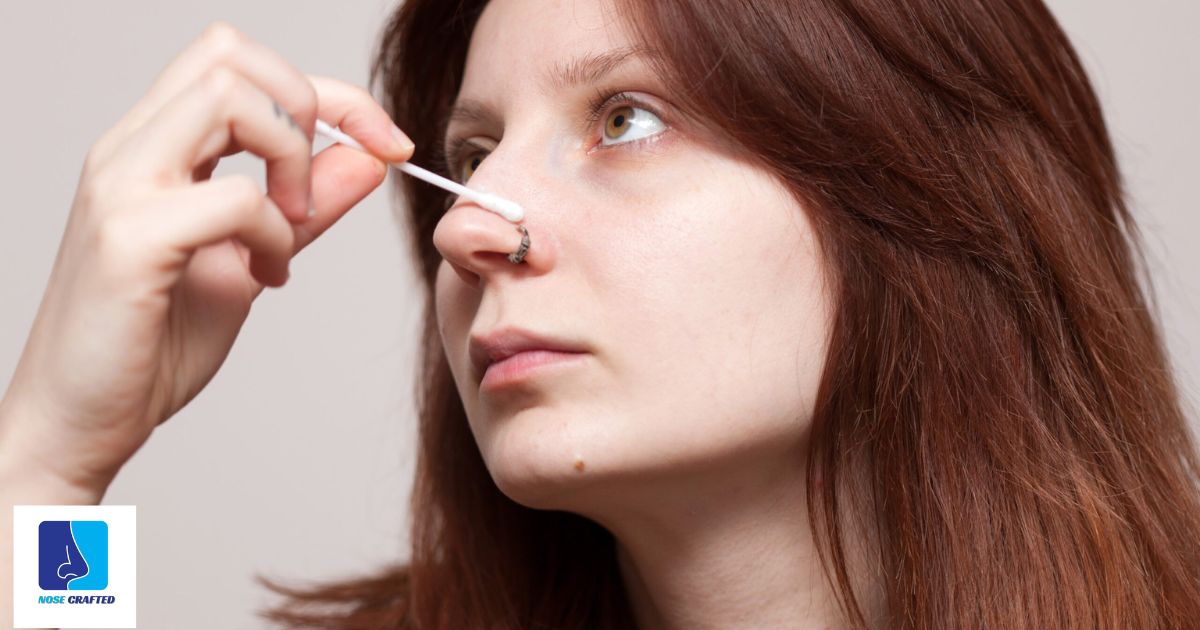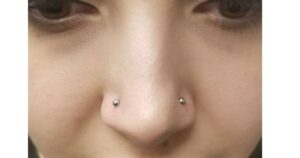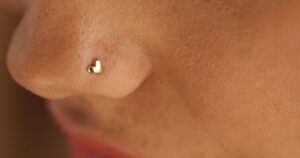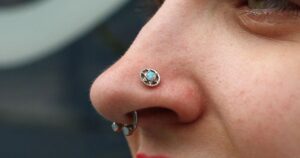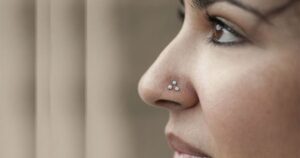A nose piercing involves puncturing the skin or cartilage of the nose to insert jewelry. It is a form of body modification and self-expression. Many cultures have embraced nose piercings for centuries, and they can hold various symbolic meanings. The procedure should be done by a professional to ensure safety and proper healing.
Ever wondered, Can you get your nose pierced at 13? The answer may surprise you. Embark on a journey through the fascinating world of self-expression and individuality. The in and outs of nose piercings, their cultural significance, and the age-old question that has intrigued many.
While policies may vary, many piercing studios have age restrictions, and getting your nose pierced at 13 may require parental consent. It’s crucial to check local regulations and choose a professional, sterile environment for the procedure. Always prioritize safety and consult with a piercing expert for guidance.
What piercing can you get at 13?
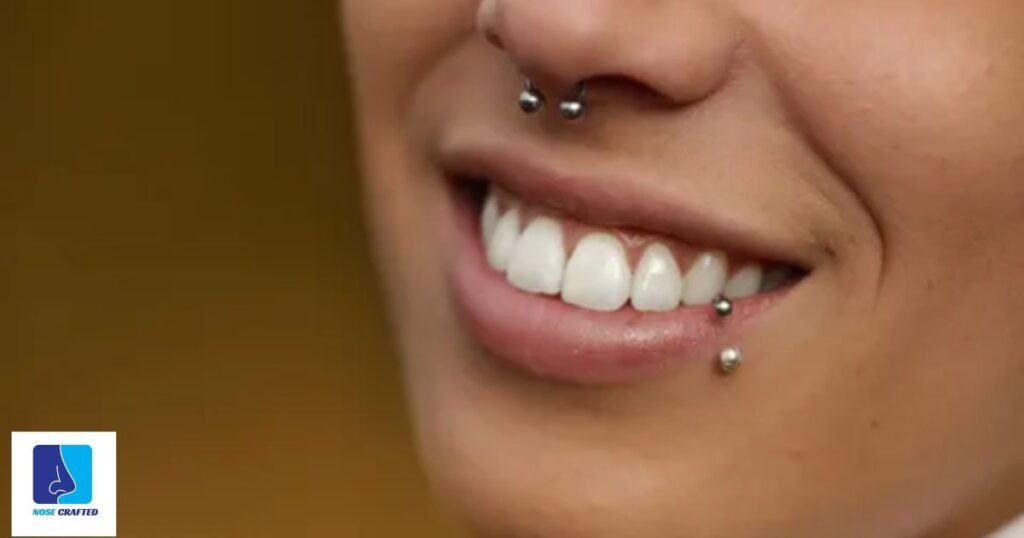
At the age of 13, the piercing options available depend on various factors, including local regulations and parental consent. Commonly accepted piercings for teenagers often include earlobe piercings, as they are considered less invasive and generally have a quicker healing time. Many reputable piercing studios may require parental permission for individuals under 18, emphasizing the importance of involving parents in the decision-making process.
While earlobe piercings are widely accepted for 13-year-olds, other types of piercings, such as cartilage piercings or body piercings, may have stricter age requirements. It’s essential to research local piercing studios and their policies, ensuring compliance with legal age restrictions and prioritizing safety and professionalism. Always consult with a piercing professional to determine the most suitable options for a safe and enjoyable piercing experience.
Do nose piercings hurt?
The level of pain from a nose piercing varies for each individual, but many describe it as a brief, sharp pinch. The discomfort typically lasts for only a few seconds during the actual piercing. With proper aftercare, any pain subsides quickly, and the joy of self-expression takes center stage.
Things to Consider Before Letting Your Child Get a Nose Piercing
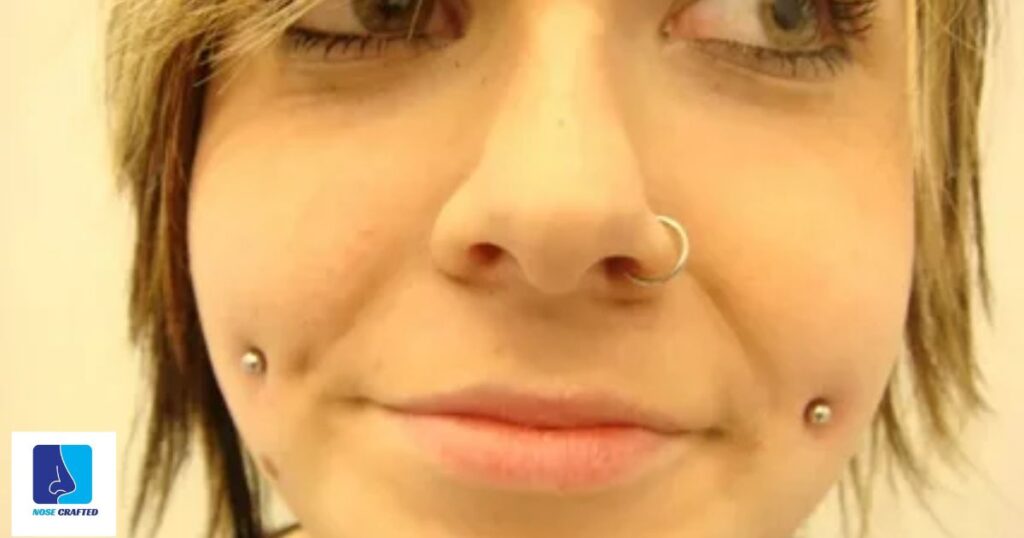
Before allowing your child to get a nose piercing, it’s crucial to consider various factors to ensure a safe and positive experience. Age and maturity play a significant role. Assess whether your child is emotionally ready to handle the responsibility of piercing aftercare and if they fully understand the permanence of the decision.
It’s essential to research reputable piercing studios that prioritize hygiene and safety. Ensure that the piercer is experienced and follows proper sterilization protocols. Consider the potential impact on your child’s school or extracurricular activities, as some institutions may have specific policies regarding visible body modifications.
- Nose Piercings Hurt
Getting a nose piercing is often associated with a brief moment of discomfort. The pain level varies from person to person, but many describe it as a quick pinch or sting. It’s essential to remember that the discomfort is short-lived, and the joy of self-expression through a stylish nose piercing can outweigh the momentary sensation.
- Piercings Can be Permanent
Piercings are often considered permanent modifications to the body, as the punctured area may not fully close even if the jewelry is removed. The healing process varies among individuals, but some piercings can leave a lasting mark. It’s essential to carefully choose the location and type of piercing, considering the potential for permanence and ensuring it aligns with your long-term preferences.
- There’s Some Care and Upkeep
Taking care of your nose piercing is crucial for a smooth healing process and maintaining its pristine look. Regular cleaning with a saline solution helps ward off infections, and avoiding unnecessary touching prevents irritation. Embracing proper care habits ensures your nose piercing remains a stylish and trouble-free expression of personal flair.
What age is appropriate for a nose piercing?
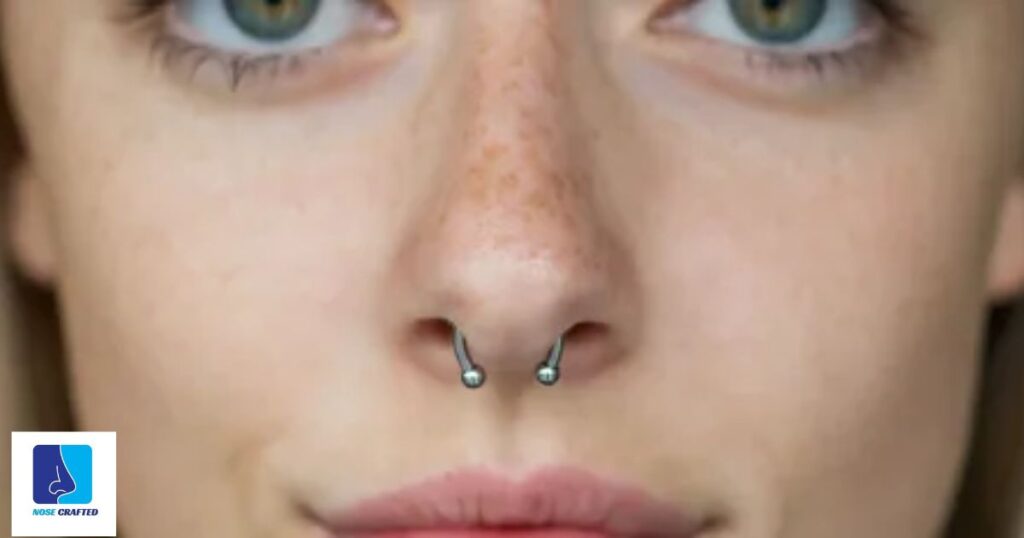
Determining the appropriate age for a nose piercing is subjective and varies among individuals and cultures. Many professional piercing studios may have specific age requirements, often requiring individuals to be at least 13 or 14 years old with parental consent. The decision also depends on the level of maturity and responsibility of the individual seeking the piercing.
It’s essential to approach the decision with careful thought and open communication. Parents and guardians should engage in conversations with their teenagers to discuss the implications, responsibilities, and potential cultural or social aspects of getting a nose piercing. Clear communication ensures that everyone involved is on the same page, fostering a sense of understanding and responsibility in the process.
Is It Ok For A 14-Year-Old To Get A Nose Piercing?
- Self-Expression: A nose piercing at 14 allows for a unique form of self-expression, letting teenagers explore and showcase their individuality.
- Boosting Confidence: The experience of getting a nose piercing can empower a 14-year-old, fostering a sense of confidence and self-assuredness.
- Cultural Traditions: In some cultures, nose piercings hold cultural significance, making it a way for teens to connect with their heritage.
- Personal Responsibility: Managing the aftercare of a nose piercing instills a sense of responsibility and discipline in young individuals.
- Social Acceptance: Nose piercings are increasingly accepted in society, allowing teens to express themselves without facing significant social stigma.
- Body Autonomy: Allowing a 14-year-old to make decisions about their body encourages a healthy understanding of autonomy and personal choices.
- Memorable Milestone: Getting a nose piercing at 14 can become a memorable and positive milestone in a teenager’s life, marking the beginning of their journey into adulthood.
Age Restrictions And Policies
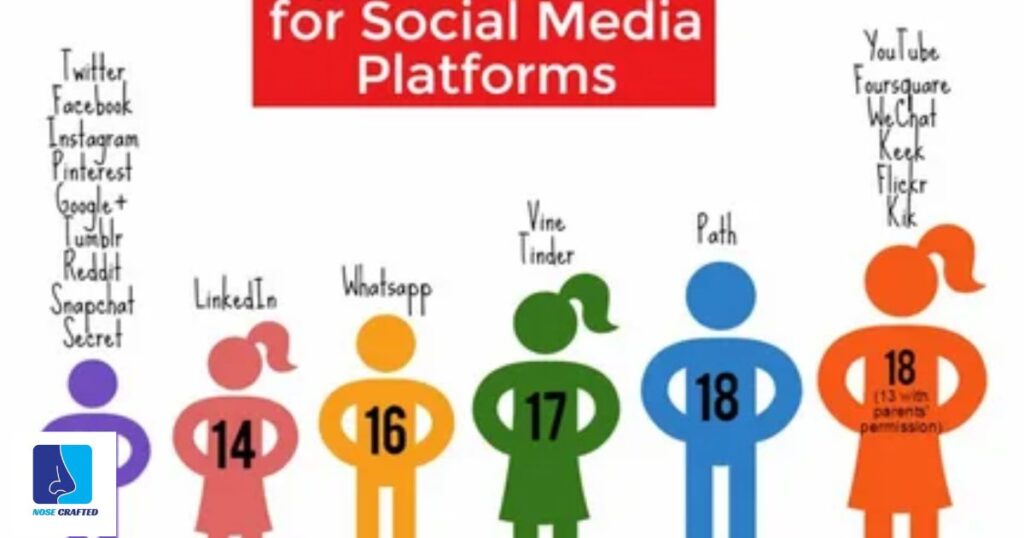
In the realm of body modifications, age restrictions and policies play a pivotal role in ensuring the safety and well-being of individuals seeking piercings. Piercing studios typically have varied age requirements, with some states or countries setting legal benchmarks. These regulations are in place to prevent potential health risks and ensure that individuals are mature enough to make informed decisions about body adornment.
Navigating these age-related policies requires individuals, especially teenagers, to be aware of the legal landscape in their specific location. Understanding local regulations helps teens and parents make informed choices about when and where it is appropriate to get a piercing, with a nose piercing.
Piercing Studios’ Varied Age Requirements
Piercing studios’ age requirements can differ significantly, adding a layer of complexity to the question of whether a 13-year-old can get their nose pierced. Some studios adhere to a minimum age policy, typically requiring clients to be at least 16 or 18 years old for facial piercings.
Navigating Local Regulations on Piercing Age
| Location | Minimum Age | Parental Consent Required | Additional Restrictions |
| United States | Varies by state | Often required for minors | Some states may have specific regulations |
| United Kingdom | 16 | No, if 16 or older | Certain piercings may have higher age limit |
| Canada | Varies by province | Typically required | Local health boards may have guidelines |
| Australia | 16 | Yes, for minors | Individual states may have additional rules |
| India | 18 | Yes, for minors | Regulations may vary by state |
| Japan | 20 | No | Cultural norms influence age restrictions |
| South Africa | 16 | Yes, for minors | Studio policies may vary |
The Role of Parental Consent

Parental consent plays a crucial role in various aspects of a teenager’s life, including decisions about body modifications like nose piercings. It is a legal requirement in many places for individuals under a certain age to obtain permission from their parents or legal guardians before undergoing such procedures.
Beyond the legal aspect, parental consent also serves as a means to involve parents in the decision-making process. This involvement allows parents to offer guidance, address any concerns they may have, and ensures that the teenager is making an informed and responsible choice. The role of parental consent is not just a legal formality but a valuable step in fostering trust and communication between parents and their teenagers.
Safety and Considerations
Ensuring safety and thoughtful considerations are paramount when contemplating a nose piercing, especially for individuals as young as 13. It is crucial to choose a professional piercing environment, where trained experts adhere to strict hygiene standards. Sterility in the piercing process is non-negotiable, as it significantly reduces the risk of infections and complications.
Expert consultation plays a vital role in guiding teens through the decision-making process. Before getting a nose piercing, it’s important to discuss the procedure with a piercing professional, addressing any concerns and ensuring a clear understanding of the aftercare routine. By prioritizing safety and seeking expert advice, teens can embark on their nose-piercing journey with confidence and minimize potential risks.
FAQ,s
Can my 13 year old get nose pierced?
It depends on the piercing studio’s age requirements and whether they allow minors with parental consent; check with the chosen studio for their specific policies.
Can a 13 year old get a nose piercing at Claire’s?
Claire’s typically requires individuals to be at least 13 years old for ear piercing but does not offer nose piercings; facial piercings are limited to earlobe piercings.
Can a 13 year old get a nose bridge piercing?
The ability for a 13-year-old to get a nose bridge piercing depends on the policies of individual piercing studios, which may vary, and parental consent is often required.
What is a good age for a nose piercing?
A good age for a nose piercing is typically in the mid to late teens, around 16 or 18, with consideration of local regulations and parental consent.
Conclusion
The question of whether a 13-year-old can get their nose pierced involves navigating a complex landscape of age requirements, studio policies, and cultural considerations. While some piercing studios may set a minimum age of 16 or 18, exceptions can exist with parental consent.
The decision to get a nose piercing at 13 should be a balanced one, taking into account personal readiness, cultural norms, and the responsibility that comes with body modification. Prioritizing safety, choosing a professional and sterile environment, and being aware of aftercare requirements are key aspects of the decision-making process.
